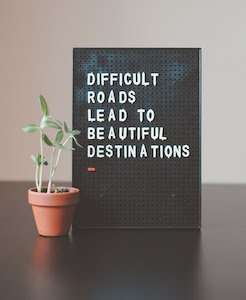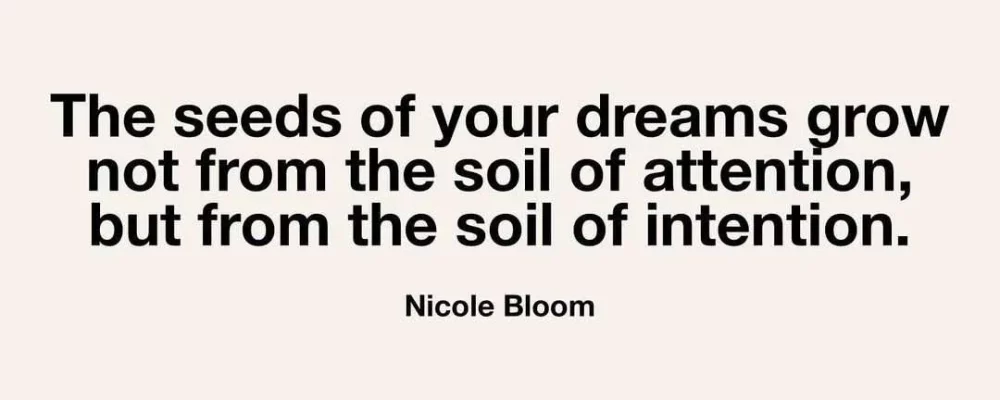A guest article by Jerika Sims.
In an article titled What Self-Awareness Really Is (and How to Cultivate It), Tasha Eurich describes self-awareness as either internal or external. Internal self-awareness is how you view yourself — your standards, values, passions, aspirations, emotions, and impact on others. Conversely, external self-awareness is about how you believe people see you.
When you see yourself clearly and recognize your standards, values, and priorities, you are able to make goal-specific decisions with confidence.
Below are 4 questions to help you build self-awareness so you can set goals and reach the life you want. They’ve helped me, and I hope they’ll help you as well!
1. Do you reflect on your life’s mission?
 When you consider where you’ve been and where you want to go, you can see how much change is going on internally and externally. One quote from GNL I love is “if the plan doesn’t work, then change the plan but never the goal”. Seasons come and go, but through the changes, your life mission stays the same.
When you consider where you’ve been and where you want to go, you can see how much change is going on internally and externally. One quote from GNL I love is “if the plan doesn’t work, then change the plan but never the goal”. Seasons come and go, but through the changes, your life mission stays the same.
Transitions require us to release the old flow so the new flow can settle in. Unknowingly, we sometimes expend too much energy focusing on things or people that lead us nowhere, and staying on these paths prevents us from progressing. Consider your goals in fitness, finances, relationships, profession, or health. What is preventing you from moving toward them?
2. Which low-hanging fruit will you avoid?

What exactly is “low-hanging fruit?” It is anything or anyone that can be won, attained, or persuaded with little effort. It is that which serves no purpose, cannot develop any further, and requires no effort to sustain.
In order to achieve what you haven’t before, you need to let go of the familiar, low-hanging fruit to make room for the unknown. Look at the protagonist of Paulo Coelho’s novel The Alchemist, Santiago, as an example. Santiago desired more from life, so he set out on a quest to achieve complete fulfillment by realizing his unique purpose. In doing so, Santiago made life-changing decisions – he let go of the familiar (his job as a sheepherder) to make room for the unknown.
Just like Santiago, we need to release the comfortable habits that aren’t leading us toward our goals. This ties back to the first question about regularly reflecting on your life’s mission – if you keep it in mind, the low-hanging fruit in your life will become more obvious.
3. Are you planting seeds to help you outgrow the familiar?

With time, water, soil and sunlight, a few tiny seeds can produce acres of plants used for sustenance or profit — resources to support living. Seeds pack a lot of power and in this context, as do your personal habits. It’s time to start practicing new and improved habits that can upgrade your physical, emotional, economical, spiritual, social, and financial life.
You’ve heard the saying, “If nothing changes, nothing changes,” right?! You always have the power to change the things you are in control of — your actions and your attitude.
As you plant these new habits, remember that your well-being is your soil — the foundation to set you up for success. You can’t lose sight of it en route to your goals. Start by making a list of positive affirmations to keep you optimistic…all for the sake of becoming a better version of yourself. This will set you up for success in the next harvest!
4. How do you deal with disappointment and setbacks?

In working on short-term and long-term goals, sometimes the outcomes aren’t what you expect. Perhaps you’ve felt a bit of disappointment and found the journey underwhelming. If you can relate, then I’d challenge you to change your outlook.
I once heard tech millionaire Myoshia Boykin-Anderson, CEO and President of AndTech Solutions, LLC speak at a women’s conference about principles in business success. She said something like, “there are pros and there are pros, there are no cons.”
In every situation you encounter, there is an opportunity to learn a little more about yourself. You could look at disappointments as setbacks, time and energy wasted— or, you can view them as lessons where you have gained more knowledge, discipline, and skills that could lead to more opportunity, confidence and creativity.
Make it a point to check in with yourself routinely. Whatever makes you mad, remember you have the power to fix it. Whatever makes you happy, don’t stop doing it. It’s that simple!
Paulo Coelho said it best, “Close some doors today. Not because of pride, incapacity or arrogance, but simply because they lead you nowhere.”


